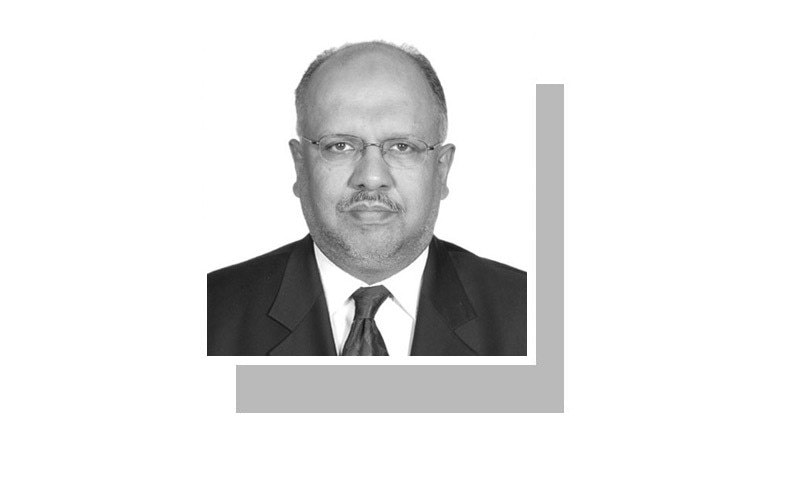
PRIME MINISTER Shahid Khaqan Abbasi’s swift move to create new federal divisions following the appointment of a bloated cabinet, now consisting of 58 members after recent additions, had a hollow ring to it.
In contrast to the official claim of Abbasi’s determination to rejuvenate government with a focus on the most vital areas, the mere structural changes with less than a year to go before elections smack more of partisan political interests.
Arming the newly inducted ministers with the backing of state institutions during the run-up to the 2018 general elections is certainly a concern worth probing. And enlarging the already considerable government machinery just to accommodate more politicians from the ruling party is another.
Making tough choices is difficult in the run-up to polls.
But more vital for the future of Pakistan, as the country struggles with a host of political, economic, social and security challenges, is the matter of a dilapidated structure of governance. As the rule of law continues to slip, the prevailing crisis of governance also threatens to deepen.
Though the Supreme Court’s disqualification of former prime minister Nawaz Sharif has been disputed by PML-N leaders as driven by a ‘small’ technicality, the matter deserves honest scrutiny.
With the rule of law arguably at its weakest point in our 70-year history, the matter of the seemingly innocuous iqama (residence permit) and Sharif’s engagement by his son’s company even as he served as prime minister may appear irrelevant to many in the ruling circle. Yet, upholding enforcement of the law across the board, even on ‘inconsequential’ issues, must remain central to tackling the gaps in the rule of law and governance.
Pakistan’s quality of governance has not just slipped; it has collapsed due to the crippling failure of law enforcement. Other ingredients have included a deliberate weakening of key institutions and policy failures of the kind that have shifted the focus away from tackling fundamental challenges. In this tragic journey, the state under successive regimes has simply abdicated its responsibilities, which should have remained central to improving governance in the country.
Accounts of ghost schools across Pakistan have often been overlooked by policymakers as more of an aberration than the norm. And yet, a dysfunctional system of catering to fundamental needs such as education or healthcare reflects poorly on the intention and ability of the Pakistani state to serve its subjects. Such gaps speak volumes for the way in which significant parts of Pakistan’s territory are slipping out of the state’s control.
Other key elements that reflect poorly on the quality of governance relate to the failure of successive regimes to enforce a more effective system of collecting taxes. In a country with at least anecdotal evidence of the numerically fewer rich living in opulence without paying their dues, the failure to extend the reach of the tax collection machinery is a key reason for the crisis of governance.
These bits of evidence must only back an oft-repeated anecdote; that Pakistan remains a poor country of some rich with the vast majority being increasingly marginalised.
Tragically, Prime Minister Abbasi’s entrance has taken place with the next parliamentary elections fast approaching. Making hard and unpopular choices to reform the state is likely to become even more remote over the period leading to the transition.
But it is reasonable to demand that the crisis surrounding today’s Pakistan must not be deepened further by saddling an already inefficient state machinery with a greater load.
Meanwhile, the July judgement against former prime minister Nawaz Sharif has been met with scepticism by members of the ruling elite. But, going forward, it is essential that action against the former premier is followed up with further investigations, trials and sentencing wherever necessary, and that other key political and business figures who are accused of committing financial wrongdoings are made an example of as well.
The journey to tackle Pakistan’s crisis of governance must be built on the universal application of the rule of law. The appearance of an accountability process that targets selected individuals, groups or political parties will end up looking half baked, partisan and divisive.
With Pakistan completing 70 years of existence, with its birth marked by one of the largest human displacements in history, it is essential for the country to tackle its crisis of governance as an essential prerequisite for nation-building. Failure to undertake this essential objective will simply take the country from one crisis to another irrespective of Pakistan’s much publicised status as the Muslim world’s only country armed with nuclear weapons.
It’s clear that a failure to reform will only knock down the remaining semblance of stability. Reclaiming Pakistan will not work without a non-partisan effort starting from the very basics that have been ignored for way too long.
The writer is an Islamabad-based journalist.
Published in Dawn, August 17th, 2017











































